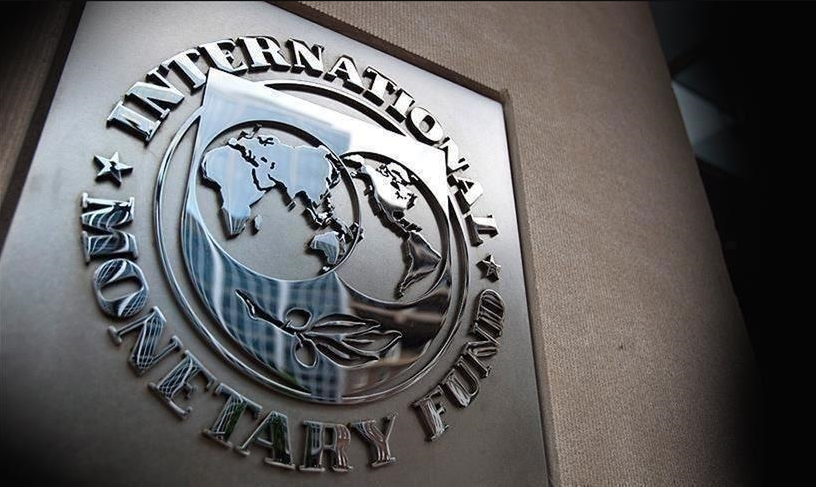Fiscal Pact
ISLAMABAD: Pakistan’s central and provincial governments have taken a significant step by signing a pact under the International Monetary Fund’s (IMF) umbrella, aimed at combating corruption within the federating units and facilitating commercial banks’ access to the wealth statements of high-level provincial public officials.
This agreement, known as the National Fiscal Pact, marks a crucial development in aligning the fiscal policies of provincial governments with those of the federal government, especially in the context of the ongoing $7 billion bailout package from the IMF.
Finance Minister Senator Muhammad Aurangzeb announced on Wednesday that all four provinces had officially signed the National Fiscal Pact, with Sindh being the last to do so just after the September 30 deadline.
This landmark agreement is expected to enhance taxation policies, redistribute some fiscal responsibilities to the provinces, and improve governance standards across the board. However, Aurangzeb assured that the National Finance Commission, which holds constitutional authority, will not be modified as part of this pact.
The IMF mandated the federal and provincial governments to finalize the National Fiscal Pact by the end of September as part of the bailout conditions. The agreement includes critical measures requiring provincial Anti-Corruption establishments to work in coordination with the newly established Anti-Money Laundering and Combating Financing of Terrorism (AML/CFT) Authority and other relevant agencies.
Furthermore, these provincial bodies are expected to collaborate with the Financial Monitoring Unit (FMU), the Federal Board of Revenue (FBR), and the National Accountability Bureau (NAB) to effectively implement the national AML and CFT strategy.
One of the significant stipulations of the pact mandates that banks gain access to the wealth statements of provincial public officials ranked from grades 17 to 22. This measure aims to ensure that the bank balances of these bureaucrats are consistent with the assets they have declared in their wealth statements filed with the FBR. This transparency is a crucial step towards accountability in public service.
The finance ministry heralded the National Fiscal Pact as a groundbreaking agreement that lays the groundwork for uniform taxation across various sectors, including property, agriculture, and sales tax on services.
However, it faces challenges, particularly from Sindh, which has expressed resistance to certain conditions, notably the abolition of agriculture support prices.
Under the pact, provincial governments can no longer set these prices and must adjust their agriculture income tax laws to impose rates on small farmers that are equivalent to federal personal income tax rates.
Another pivotal condition is that the federal government will scale back its involvement in provincial matters, in line with the 18th Amendment. However, the decision-making on this aspect will occur through consensus via the Council of Common Interests (CCI) or the National Economic Council (NEC), addressing Sindh’s concerns.
Additionally, the federal government will, in consultation with provincial governments, review social protection programs, including the Benazir Income Support Programme (BISP).
This review aims to identify any overlapping programs and fiscal allocations to optimize the effectiveness of social protection efforts. In response to Sindh’s objections, the federal government has excluded the BISP from the list of expenditures to be shared.
Furthermore, Aurangzeb stated that ongoing discussions with Sindh regarding the sharing of BISP expenses are taking place, with Rs592 billion allocated for BISP spending in the current fiscal year.
Under the new fiscal pact, provincial governments will be responsible for managing projects within their respective regions. The finance ministry has also relaxed the condition of transferring federally funded projects to provinces, linking such transfers to the NEC’s consent.
In a recent event, Aurangzeb emphasized the importance of leveraging Pakistan’s improving economic conditions to achieve lasting macroeconomic stability. He noted that while the economy has stabilized, it is crucial to maintain structural reforms to secure long-term growth.
Aurangzeb highlighted that the latest inflation figures have exceeded expectations and could bolster economic resilience, paving the way for a sustainable growth trajectory. He also pointed out the government’s strategic rejection of all bids for treasury bills last week, indicating a shift away from desperation in borrowing and towards a more robust economic position.
I am a dynamic professional, specializing in Peace and Conflict Studies, Conflict Management and Resolution, and International Relations. My expertise is particularly focused on South Asian Conflicts and the intricacies of the Indian Ocean and Asia Pacific Politics. With my skills as a Content Writer, I serve as a bridge between academia and the public, translating complex global issues into accessible narratives. My passion for fostering understanding and cooperation on the national and international stage drives me to make meaningful contributions to peace and global discourse.










